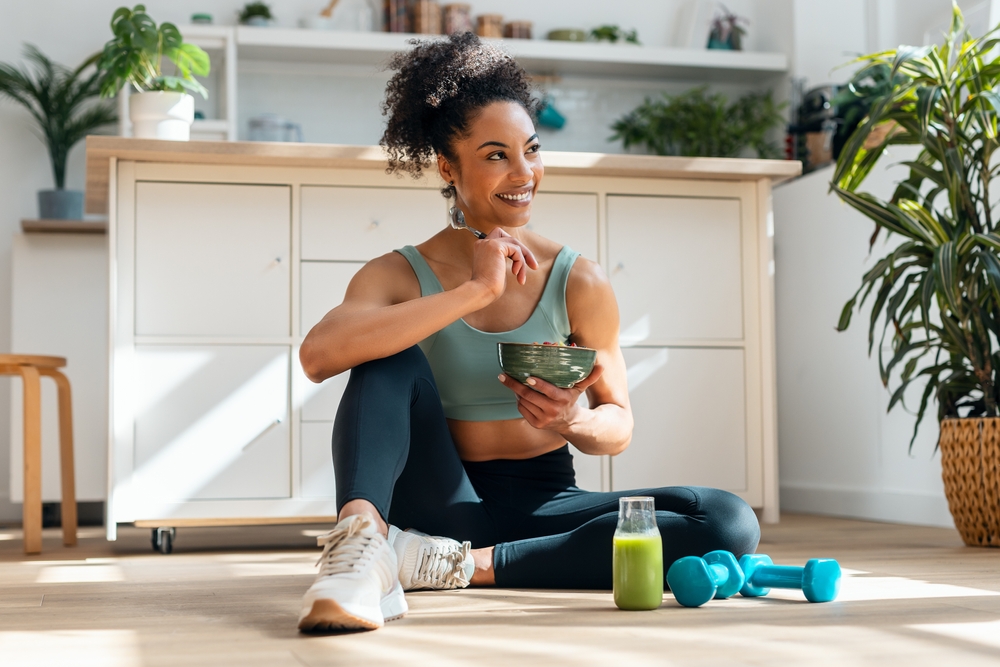
WWW.DISCOVERMAGAZINE.COM
6 Healthy Changes That Can Remove the Need to Take Supplements
According to the Centers for Disease Control and Prevention (CDC), more than half of American adults take at least one type of supplement. Supplement usage typically increases as people age, with almost a quarter of people over 60 taking four or more supplements. However, supplements can have side effects, can be costly, and can interact negatively with medications. For some people, diet and lifestyle modifications can be a way to achieve positive health benefits instead of relying on supplements. Here are six lifestyle changes to improve your health.1. ExerciseGetting your body moving has a multitude of health benefits. Exercise supports cardiovascular health, improves nutrient absorption, supports bone density, improves mood, and aids in weight loss. A combination of cardio aerobic and strengthening exercises is considered the most effective approach.2. Get SunlightAn alternative to vitamin D is getting sunshine for 10 to 20 minutes several times a week. The sun converts cholesterol in our skin into vitamin D, which provides several benefits. These include supporting muscle and bone health, boosting the immune system, and regulating blood sugar and blood pressure.Sunlight also kills some bacteria. The optimal time for sun exposure is between 10 a.m. and 3 p.m. Exposure to the sun Increases vitamin D production in the arms, legs, torso, and/or back.3. Manage Your StressAshwagandha, St. Johns Wort, melatonin, theanine, and magnesium are commonly used to manage stress levels, as well as decrease anxiety and depression. However, there are a variety of behavioral methods that can address these health concerns.Mindfulness, meditation, yoga, biofeedback, and self-care can all help calm the mind and body.4. Eat a Healthy DietAlthough dietary supplements are a popular resource for certain vitamins and minerals, getting our necessary nutrients from food is preferable. Healthy eating provides many benefits, including weight control, reduced cancer risk, bone support, and improved gut health. A whole diet with minimally processed food supplies health-boosting nutrients and minerals.Fruits and vegetables, for example, provide vitamins A, C, and E, magnesium, folic acid, magnesium, zinc, and potassium. Protein consumption from lean beef, poultry, fatty fish such as salmon, legumes, eggs, seeds, nuts, and tofu provides iron, zinc, magnesium, and B vitamins.In order to get adequate fiber, focus on whole grains, including oats, millet, brown rice, rye, and quinoa. In their whole form, grains provide B vitamins, Vitamin E, selenium, zinc, copper, antioxidants, and phytochemicals.Certain fermented foods contain probiotics which aid digestive health. These include yogurt, kefir, kimchi, sauerkraut (uncooked), and miso.5. Get Better SleepSleep impacts both physical and mental health including immune, metabolic, and cognitive function, along with mood, anxiety, blood sugar regulation, and cardiovascular health. However, 10 percent of Americans have chronic insomnia.That would explain why sleep supplements are a huge industry, reaching a global value of almost $7 billion in 2023. Some common sleep supplements are melatonin, valerian, theanine, and magnesium. Some tips for improving sleep include having a regular routine/bedtime, sleeping in a cool room, limiting alcohol and caffeine, getting regular exercise, and avoiding devices such as cell phones and tablets before bed.6. Stay HydratedProper hydration helps to lubricate joints, aids waste elimination, improves skin, and enhances cognitive function. Although there are many flavored drinks on the market, plain water is a basic, calorie-free hydration option.Most people are familiar with the eight-glass-a-day water recommendation, but the current recommendation is actually more. For people who are sweating a lot due to working out or hot environments, drinks with electrolytes might be a good option.This article is not offering medical advice and should be used for informational purposes only.Article SourcesOur writers at Discovermagazine.com use peer-reviewed studies and high-quality sources for our articles, and our editors review for scientific accuracy and editorial standards. Review the sources used below for this article:Discover Magazine. How 8 Supplements Like Vitamin D and Omega-3 Interact with MedicationDiscover Magazine. 6 Reasons Why You Feel So Good After Lifting WeightsMedical Hypotheses. Regular sun exposure benefits healthDiscover Magazine. Fermented Foods Sustain Both Microbiomes and Cultural HeritageNational Acadamies Press. Dietary Reference Intakes for Water, Potassium, Sodium, Chloride, and Sulfate Allison Futterman is a Charlotte, N.C.-based writer whose science, history, and medical/health writing has appeared on a variety of platforms and in regional and national publications. These include Charlotte, People, Our State, and Philanthropy magazines, among others. She has a BA in communications and an MS in criminal justice.
0 Comments
0 Shares


